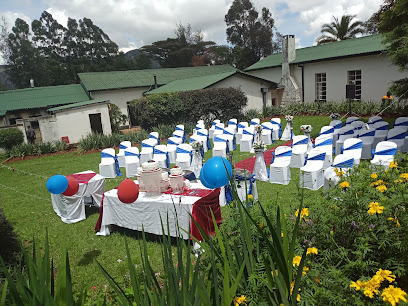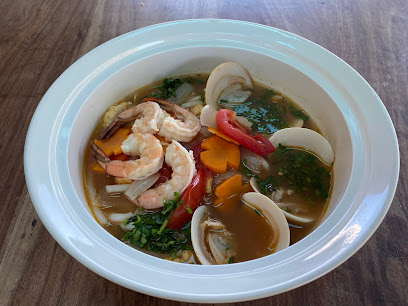
Nyanga National Park: A Highland Haven
Nestled in the Eastern Highlands of Zimbabwe, Nyanga National Park is a treasure trove of natural beauty and cultural history. With its rolling green hills, sparkling rivers, and majestic waterfalls, the park offers a serene escape from the hustle and bustle of city life. The park's high altitude provides a cool climate, making it a refreshing retreat even during the hottest months. One of the park's highlights is Mount Nyangani, Zimbabwe's highest peak. Hiking to the summit rewards you with breathtaking panoramic views of the surrounding landscape. For those interested in history, the park features several ancient stone ruins, including the mysterious Nyangwe and Chawomera forts, which speak volumes about the region's rich past. Nyanga National Park is also a haven for wildlife enthusiasts. The park is home to a variety of animals such as antelopes, zebras, and numerous bird species. Visitors can enjoy game viewing, bird watching, and even fishing in the park's well-stocked rivers and dams. Whether you're an adventurer, a history buff, or simply seeking tranquility, Nyanga National Park has something special to offer.
Local tips in Nyanga National Park
- Bring warm clothing, as temperatures can drop significantly in the highlands, especially in the evenings.
- Hire a local guide for hiking Mount Nyangani to ensure you stay on safe paths and learn more about the area.
- Visit the park's waterfalls, such as Mtarazi Falls and Nyangombe Falls, for stunning views and great photo opportunities.
- Carry insect repellent to protect yourself from mosquitoes, especially near water bodies.
- Check the weather forecast before planning your trip, as heavy rains can make some trails slippery and difficult to navigate.
Nyanga National Park: A Highland Haven
Nestled in the Eastern Highlands of Zimbabwe, Nyanga National Park is a treasure trove of natural beauty and cultural history. With its rolling green hills, sparkling rivers, and majestic waterfalls, the park offers a serene escape from the hustle and bustle of city life. The park's high altitude provides a cool climate, making it a refreshing retreat even during the hottest months. One of the park's highlights is Mount Nyangani, Zimbabwe's highest peak. Hiking to the summit rewards you with breathtaking panoramic views of the surrounding landscape. For those interested in history, the park features several ancient stone ruins, including the mysterious Nyangwe and Chawomera forts, which speak volumes about the region's rich past. Nyanga National Park is also a haven for wildlife enthusiasts. The park is home to a variety of animals such as antelopes, zebras, and numerous bird species. Visitors can enjoy game viewing, bird watching, and even fishing in the park's well-stocked rivers and dams. Whether you're an adventurer, a history buff, or simply seeking tranquility, Nyanga National Park has something special to offer.
When is the best time to go to Nyanga National Park?
Iconic landmarks you can’t miss
Worlds View
Experience breathtaking panoramas and serene landscapes at World’s View, a must-visit tourist attraction in Nyanga, Zimbabwe.
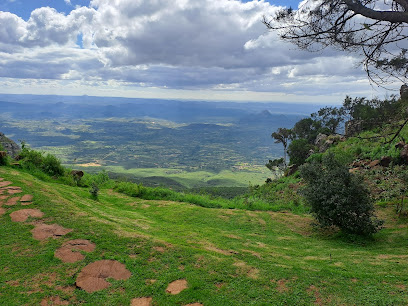
Nyangombe Falls
Explore the breathtaking beauty of Nyangombe Falls, a hidden gem in Nyanga, Zimbabwe, perfect for nature lovers and adventure seekers.
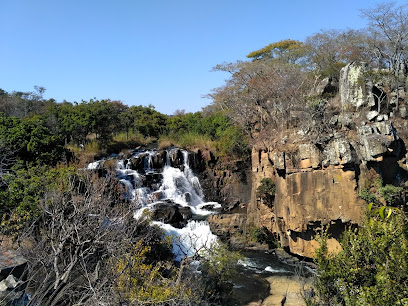
Nyanga Pit Structures
Explore the ancient Nyanga Pit Structures in Zimbabwe's stunning National Park, where history and breathtaking landscapes meet in perfect harmony.
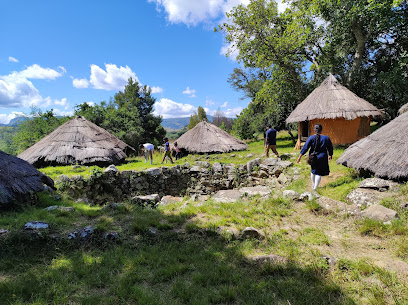
Unmissable attractions to see
Cross Kopje
Explore Cross Kopje in Mutare for breathtaking views, rich history, and a serene escape into nature’s beauty.
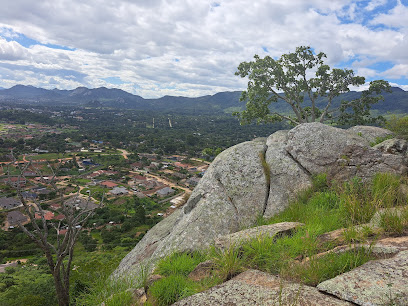
Nyanga Pit Structures
Experience the historical wonder of the Nyanga Pit Structures in Zimbabwe's premier national park, where nature and culture intertwine beautifully.
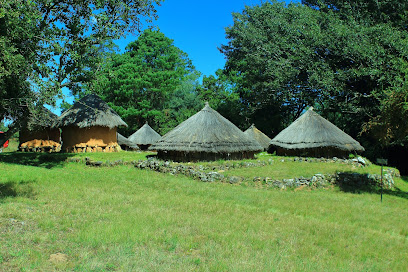
Nyanga Quadbike Tours
Explore the breathtaking landscapes of Nyanga on thrilling quadbike tours, perfect for adventure seekers and nature lovers alike.
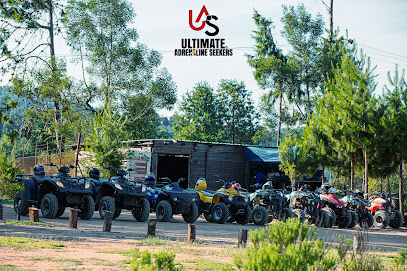
Nyanga and Museum
Explore the captivating cultural heritage of Zimbabwe at Nyanga and Museum, where history meets stunning natural beauty.
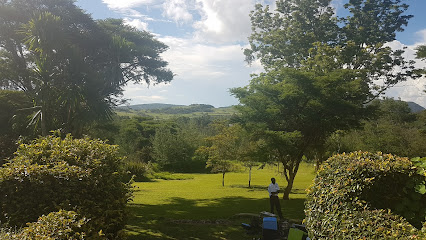
Chinamata Falls
Explore the breathtaking beauty of Chinamata Falls in Mutare, a serene destination offering stunning views, lush greenery, and a refreshing escape into nature.
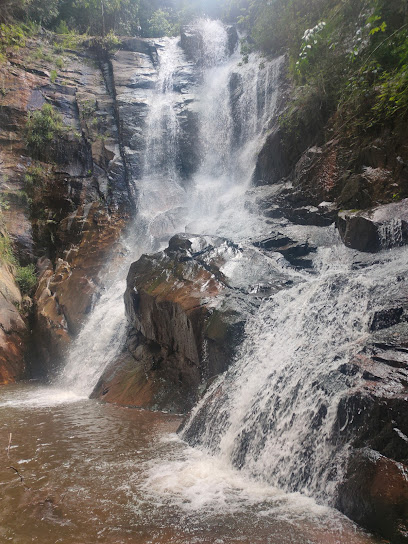
Christmas Pass
Discover the breathtaking views and rich cultural experiences at Christmas Pass, a hidden gem in Mutare, Zimbabwe, perfect for nature lovers and adventurers.
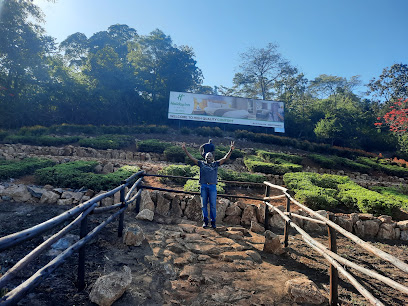
Nyamazi Greens
Discover the tranquil beauty of Nyamazi Greens, a premier camping farm in Zimbabwe, where nature and adventure come together for an unforgettable escape.
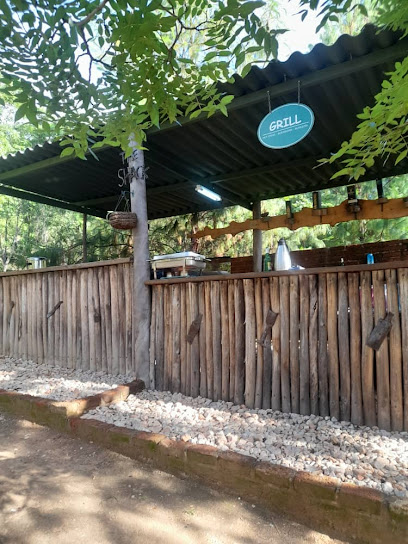
Mtarazi Falls Viewpoint
Experience the breathtaking beauty of Mtarazi Falls, Zimbabwe's tallest waterfall, at the stunning viewpoint surrounded by nature's splendor.
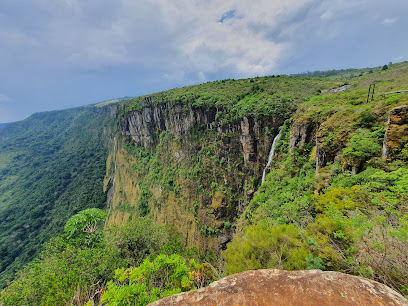
Pungwe Gorge View
Explore the breathtaking Pungwe Gorge View in Honde Valley, a hidden gem in Zimbabwe's national park, perfect for nature lovers and adventure seekers alike.
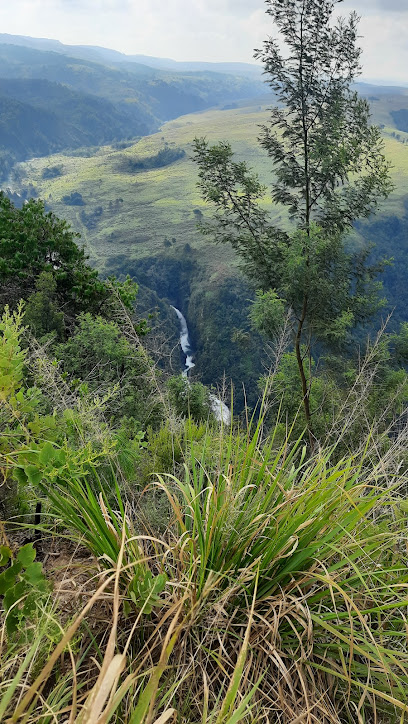
Trout Hatchery Nyanga National Park
Explore the enchanting Trout Hatchery in Nyanga National Park, a serene getaway combining nature, education, and conservation efforts in Zimbabwe.
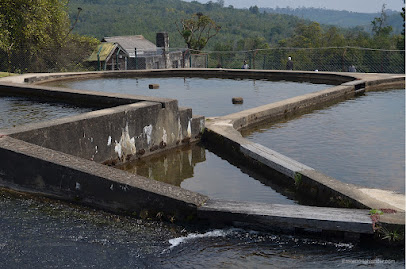
Manyonho
Explore the breathtaking hiking trails of Manyonho in Honde Valley, a perfect retreat for nature lovers and adventure seekers.
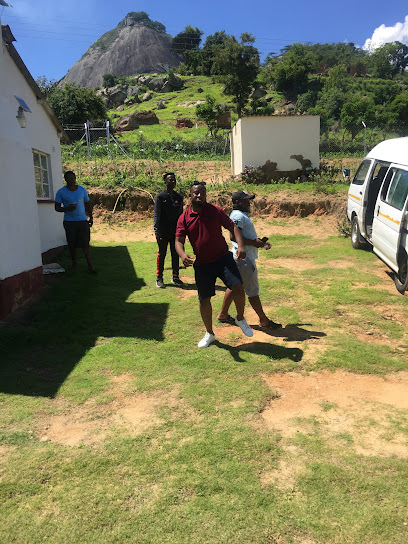
Ziwa Site Museum
Explore the captivating history at Ziwa Site Museum, a cultural gem in Nyanga, Zimbabwe, showcasing ancient artifacts and rich heritage.
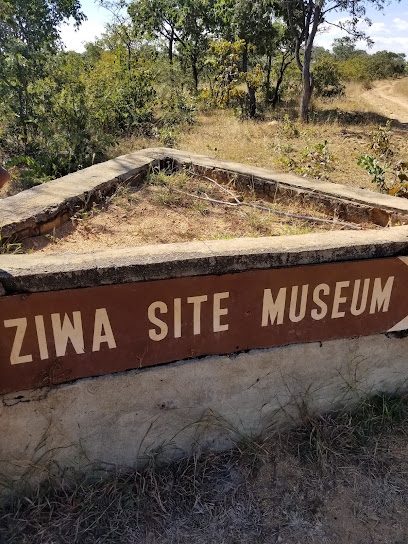
EaglesView
Discover the breathtaking beauty of EaglesView in Nyanga, Zimbabwe – a top hiking area with stunning vistas and diverse trails.
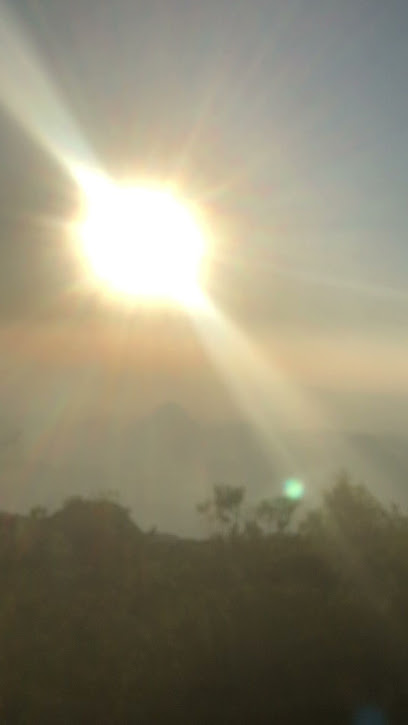
Waterfall
Explore the stunning Waterfall in Nyanga, a natural wonder perfect for hiking and enjoying the breathtaking beauty of Zimbabwe's landscapes.
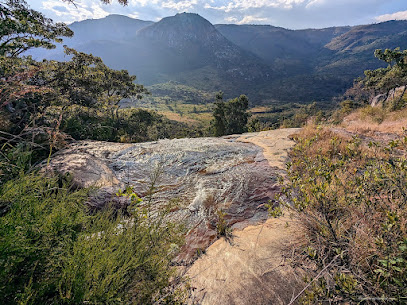
Bambwe
Explore the breathtaking landscapes and rich biodiversity of Bambwe, a hidden gem in Nyanga, Zimbabwe's stunning highlands.
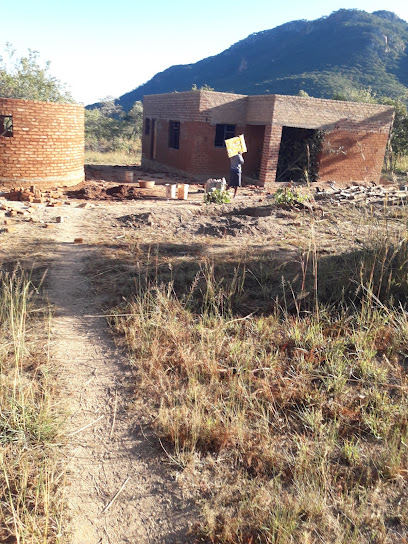
Essential places to dine
Markets, malls and hidden boutiques
Nyanga National Park
Experience the breathtaking landscapes and rich biodiversity of Nyanga National Park, a true natural wonder in Zimbabwe's eastern highlands.
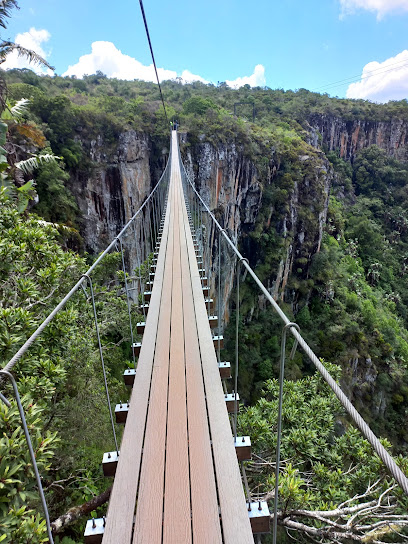
Claremont Kiosk
Experience the vibrant flavors of Zimbabwe at Claremont Kiosk, Nyanga's premier destination for fresh fruits and vegetables.
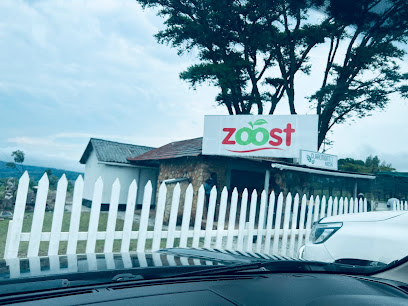
Mega Family Choice
Explore an extensive selection of local and international products at Mega Family Choice, your go-to supermarket in Nyanga, Zimbabwe.
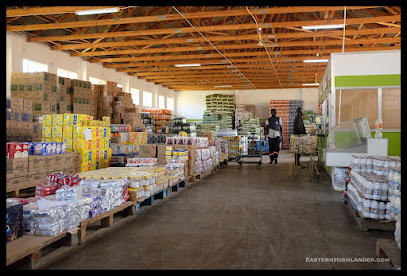
Mega Family Choice Nyamhuka 1
Discover the vibrant flavors of Nyanga at Mega Family Choice Nyamhuka 1, your go-to grocery store for local and international products.

Nyagambu Supermarket
Experience the vibrant flavors of Zimbabwe at Nyagambu Supermarket, a culinary hub in Nyanga offering local produce and unique snacks.

Nyamagaya Orchards and shop
Explore the fresh flavors and local crafts at Nyamagaya Orchards and Shop in Nyanga, where nature and culture come together in a unique shopping experience.
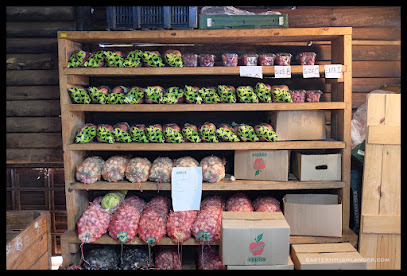
Z J Bangwayo
Discover Z J Bangwayo, your trusted convenience store in Nyanga, offering essential supplies and local insights for an unforgettable Zimbabwean adventure.
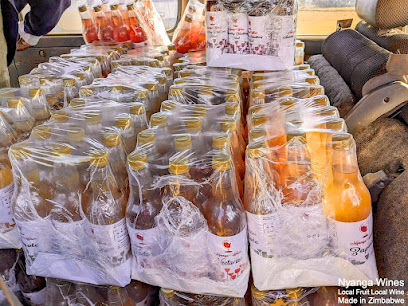
God's Will
Explore unique fashion at God's Will, a vibrant clothing store in Nyanga, Zimbabwe, offering a blend of local style and modern trends.
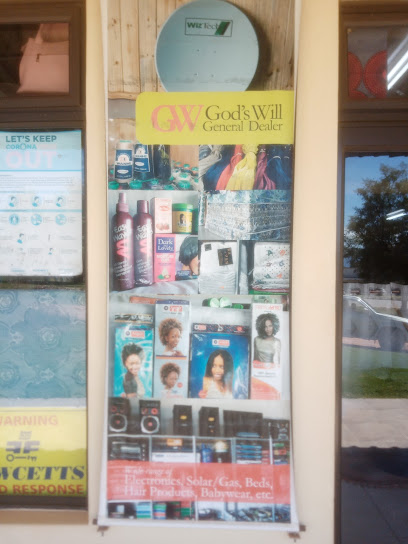
Exodus Convenience Store Nyamhuka 2
Discover essential supplies at Exodus Convenience Store in Nyanga, your trusted pitstop for snacks and local goods while exploring Zimbabwe's natural beauty.
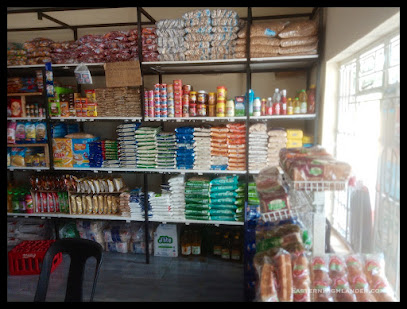
Exodusplus Variety Shop
Discover unique home goods and local crafts at Exodusplus Variety Shop in Nyanga, a vibrant hub of culture and creativity.
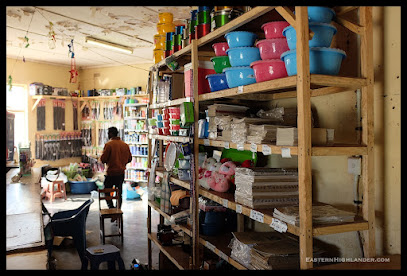
Kumboedza Store by Tafamombe
Explore local crafts and flavors at Kumboedza Store by Tafamombe in Nyanga, Zimbabwe—a perfect blend of culture and shopping.
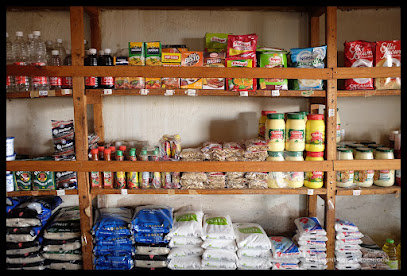
Nyamhuka Two Superette
Discover Nyamhuka Two Superette, the go-to convenience store in Nyanga for snacks, drinks, and local goods amidst stunning landscapes.

Musuwo Shops
Explore Musuwo Shops in Nyanga for an authentic local shopping experience filled with fresh produce and Zimbabwean delicacies.
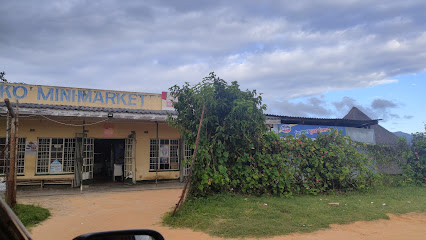
Kashmir trading
Explore unique local treasures at Kashmir Trading in Nyanga, a charming general store offering a wide range of artisanal goods and essentials.

Furniture Zone
Explore unique handcrafted furniture and local artistry at Furniture Zone in Nyanga, where every piece tells a story.
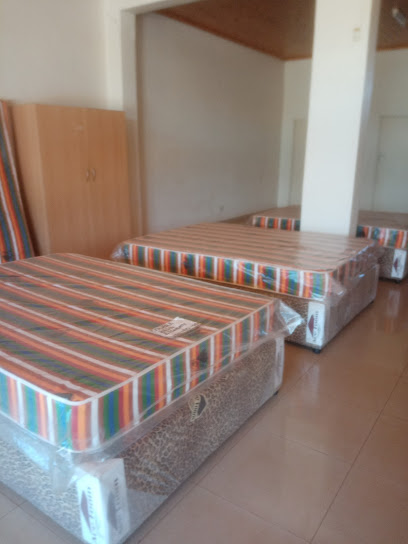
Essential bars & hidden hideouts
Mukungwe Bottle Store
Experience the lively spirit of Nyanga at Mukungwe Bottle Store, a local bar offering authentic drinks and a vibrant atmosphere.
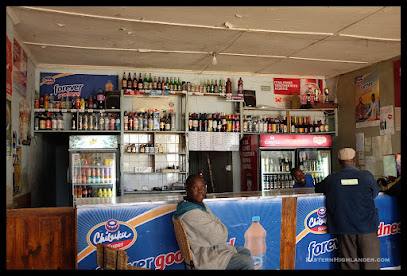
Hanzu Bar
Experience the vibrant atmosphere and delectable grilled dishes at Hanzu Bar, Mutare's premier destination for culinary delights and social gatherings.
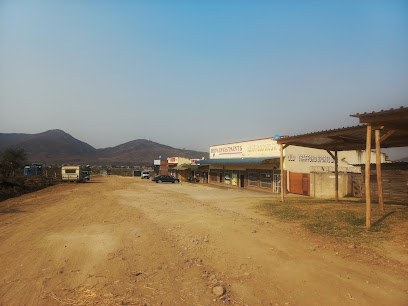
OneLove Bar
Discover the vibrant flavors of grilled cuisine at OneLove Bar in Mutare, a cultural hotspot for tourists seeking local dining experiences.
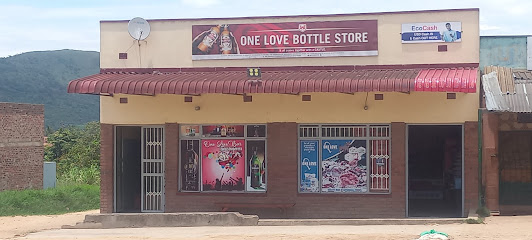
Nyaruwanga Bottle Store
Discover the vibrant atmosphere and local flavors at Nyaruwanga Bottle Store, Mukani's beloved bar, perfect for a refreshing drink and socializing.
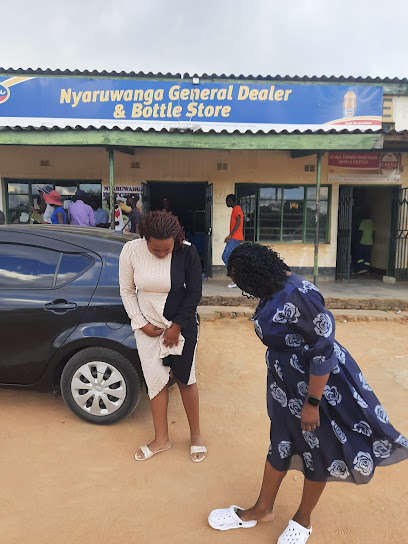
Mai Nyamakanga Sadza ne Nyama
Experience authentic Zimbabwean cuisine at Mai Nyamakanga Sadza ne Nyama, a family-friendly gem in the heart of Nyanga.
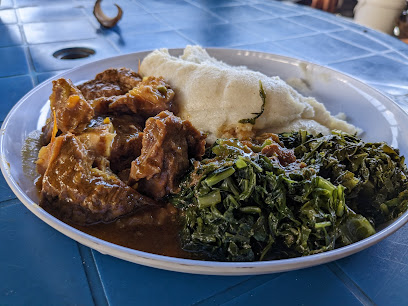
Stinos Bar
Experience the vibrant atmosphere of Stinos Bar in Mutare, where local drinks and lively entertainment await every visitor.

Nyanga Craft Cider
Explore artisanal ciders at Nyanga Craft Cider, where local flavors meet breathtaking landscapes in Troutbeck, Zimbabwe.
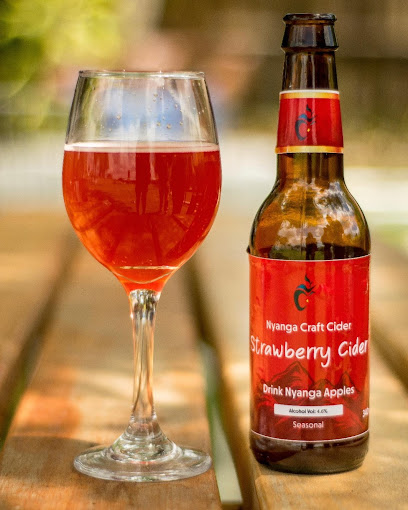
Ben's Place
Discover the lively essence of local nightlife at Ben's Place, where refreshing drinks and friendly vibes create an unforgettable experience.

All Natural @ Zumbane Lodges
Discover the essence of Zimbabwean cuisine at All Natural @ Zumbane Lodges, where fresh ingredients meet breathtaking views in Nyanga.
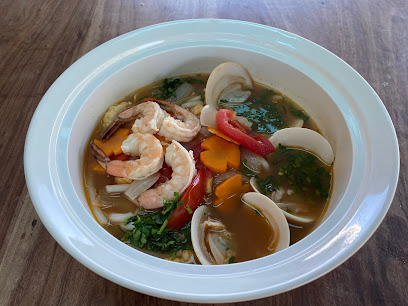
Jamaica Inn
Savor the best fast food at Jamaica Inn in Nyanga, where local flavors meet quick service for an unforgettable dining experience.

Family Inn
Discover Family Inn in Nyanga: A family-friendly retreat surrounded by breathtaking nature, perfect for adventure and relaxation.
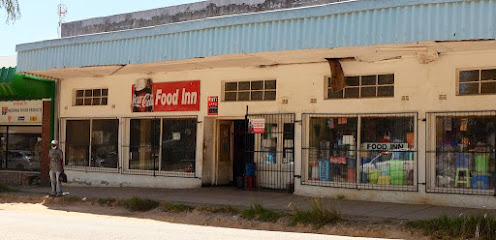
Whistles Bar And Grill
Discover the vibrant flavors of Zimbabwe at Whistles Bar And Grill in Nyanga, where delicious grilled dishes meet a lively atmosphere.
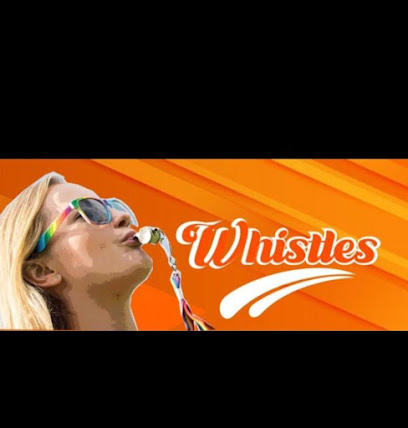
Ziwazhako Bar
Discover the charm of Ziwazhako Bar in Nyanga, where relaxation meets local culture in a perfect blend of drinks and ambiance.

Little Swallows
Discover Little Swallows in Nyanga, a cozy bar offering a vibrant atmosphere and local drinks for an unforgettable experience.
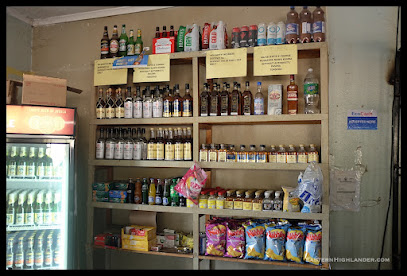
Local Phrases about Nyanga National Park
-
- HelloMhoroi
[Mho-roy] - GoodbyeKwaheri
[Kwa-he-ri] - YesEhe
[E-he] - NoAa
[Aa] - Please/You're welcomeNdatenda
[Nda-ten-da] - Thank youZikomo
[Zi-ko-mo] - Excuse me/SorrySamukani
[Sa-mu-ka-ni] - How are you?Unjani?
[Un-ja-ni] - Fine. And you?Ndine zvangu. Nei?
[Ndi-ne zva-ngu. Nei?] - Do you speak English?Wakarurama here chiNdebele?
[Wa-ka-ru-ra-ma he-re chi-Nde-be-le?] - I don't understandHandina kugara
[Han-di-na ku-ga-ra]
- HelloMhoroi
-
- I'd like to see the menu, pleaseNdave kuda kubvisa menu, musoro
[Nda-ve ku-da ku-bvi-sa me-nu, mu-so-ro] - I don't eat meatHandikwi nyama
[Han-di-kwi nya-ma] - Cheers!Chakanaka!
[Cha-ka-na-ka] - I would like to pay, pleaseNdave kuda kushandisa, musoro
[Nda-ve ku-da ku-shan-di-sa, mu-so-ro]
- I'd like to see the menu, pleaseNdave kuda kubvisa menu, musoro
-
- Help!Vhara!
[Vha-ra] - Go away!Enda!
[En-da] - Call the Police!Bvunza mapurisa!
[Bvu-nza ma-pu-ri-sa] - Call a doctor!Bvunza dokotera!
[Bvu-nza do-ko-te-ra] - I'm lostNdakutadzirei
[Nda-ku-tad-zi-rei] - I'm illNdakazvishaya
[Nda-ka-zvi-sha-ya]
- Help!Vhara!
-
- I'd like to buy...Ndave kuda kudzora...
[Nda-ve ku-da ku-dzo-ra...] - I'm just lookingNdakanganisa
[Nda-kan-ga-ni-sa] - How much is it?Kunenge kwaivepi?
[Ku-nen-ge kwa-i-ve-pi] - That's too expensiveIcho chiri mharidzo kupi
[I-cho chi-ri mha-ri-dzo ku-pi] - Can you lower the price?Unoramba kugadzirisa pfuma?
[U-no-ram-ba ku-gad-zi-ri-sa pfu-ma]
- I'd like to buy...Ndave kuda kudzora...
-
- What time is it?Sarudzo here?
[Sa-ru-dzo he-re] - It's one o'clockIyi ndiyo saa remumwe
[I-yi ndi-yo sa-a re-mum-we] - Half past (10)Muviri muna (10)
[Mu-vi-ri mu-na (10)] - MorningMaita
[Mai-ta] - AfternoonMugodhi
[Mu-go-dhi] - EveningMugorowe
[Mu-go-ro-we] - YesterdayChakare
[Cha-ka-re] - TodayNhasi
[Nha-si] - TomorrowMangwana
[Man-gwa-na] - 1Mumwe
[Mum-we] - 2Makumi maviri
[Ma-ku-mi ma-vi-ri] - 3Makumi matatu
[Ma-ku-mi ma-ta-tu] - 4Makumi mane
[Ma-ku-mi ma-ne] - 5Makumi mashanu
[Ma-ku-mi ma-sha-nu] - 6Makumi masvoro
[Ma-ku-mi ma-svo-ro] - 7Makumi mavhiri
[Ma-ku-mi ma-vhi-ri] - 8Makumi mavhanda
[Ma-ku-mi ma-vhan-da] - 9Makumi masere
[Ma-ku-mi ma-se-re] - 10Makumi mafumi
[Ma-ku-mi ma-fu-mi]
- What time is it?Sarudzo here?
-
- Where's a/the...?Mukupi mukutungamidza...?
[Mu-ku-pi mu-ku-tun-ga-mid-za...?] - What's the address?Adhiresi yekupi?
[A-dhi-re-si ye-ku-pi?] - Can you show me (on the map)?Unoratidza sei (pamap)?
[U-no-ra-tid-za sei (pa-map)?] - When's the next (bus)?Ndiyani icho chakabva?
[Ndi-ya-ni i-cho cha-ka-bva] - A ticket (to ....)Chitiketi (kuna ....)
[Chi-ti-ke-ti (ku-na ....)]
- Where's a/the...?Mukupi mukutungamidza...?
History of Nyanga National Park
-
Nyanga National Park is home to some of the oldest human settlements in Zimbabwe. Archaeological evidence suggests that early human inhabitants lived in the region as far back as the Stone Age, around 100,000 years ago. The area is dotted with ancient stone structures and terraces that indicate early agricultural practices.
-
In the late 17th century, the Rozvi Empire, a powerful Shona state, established its presence in the Nyanga region. The Rozvi were known for their military prowess and sophisticated stone architecture. Ruins of their stone buildings can still be found within the park, offering a glimpse into their way of life.
-
The Nyanga Complex refers to a series of ancient stone ruins scattered across Nyanga National Park. These ruins, believed to date back to the 15th century, include terraces, hill forts, and pit structures. They are thought to have been created by the Shona people and are a testament to their advanced agricultural techniques and social organization.
-
During the colonial era, the Nyanga region was designated as a recreational area for European settlers. In 1926, it was officially declared a national park, making it one of the oldest national parks in Zimbabwe. The park was initially used for hunting and other recreational activities by the colonial elite.
-
During World War II, Italian prisoners of war were held in camps located within Nyanga National Park. These prisoners were involved in various construction projects, including the development of roads and infrastructure that are still in use today. The remnants of these camps serve as a historical reminder of the park's multifaceted past.
-
After Zimbabwe gained independence in 1980, Nyanga National Park underwent significant changes. The park's management focused on conservation efforts and promoting eco-tourism. New facilities were developed to accommodate the growing number of visitors, and efforts were made to preserve the park's rich cultural and historical heritage.
-
Nyanga National Park holds immense cultural significance for the local Shona people. The park is considered a sacred place, with numerous sites of spiritual and historical importance. Traditional ceremonies and rituals are still performed in the park, maintaining a deep connection between the land and its indigenous inhabitants.
Nyanga National Park Essentials
-
Nyanga National Park is located in the eastern highlands of Zimbabwe. The nearest major city is Mutare, approximately 115 kilometers away. The most convenient way to get to Nyanga National Park is by car. You can rent a car in Harare, the capital city, and drive to the park via the A14 highway. The journey typically takes around 3 to 4 hours. Alternatively, you can take a bus from Harare to Mutare and then hire a taxi or private transfer to Nyanga.
-
Within Nyanga National Park, the best way to get around is by car, especially if you plan to explore different parts of the park. Rental cars are available in Harare and Mutare. For those who prefer not to drive, guided tours are also available and can be arranged through local tour operators. Walking and hiking are popular activities within the park, and several trails can be explored on foot.
-
The official currency in Zimbabwe is the Zimbabwean Dollar (ZWL). However, the US Dollar (USD) is widely accepted, especially in tourist areas. Credit cards are accepted in some hotels, restaurants, and shops, but it is advisable to carry cash, especially for smaller establishments and when visiting rural areas. ATMs are available in Mutare, but it is wise to withdraw sufficient cash before traveling to ensure you have enough funds.
-
Nyanga National Park is generally a safe destination for tourists. However, it is advisable to take standard precautions. Avoid walking alone at night in unfamiliar areas and keep an eye on your belongings in crowded places. While the park itself is safe, be cautious in urban centers like Mutare, where petty crime can occur. Avoid displaying valuables and be aware of your surroundings.
-
In case of emergency, dial 999 for immediate assistance. The local police station and medical facilities are available in Nyanga town. It is recommended to have travel insurance that covers medical emergencies. For minor health issues, there are pharmacies in Nyanga where you can purchase over-the-counter medications. The nearest hospital is in Mutare, which is well-equipped to handle more serious medical conditions.
-
Fashion: Do dress modestly and comfortably, especially when hiking. Avoid wearing revealing clothing. Religion: Do respect local customs and traditions. When visiting local villages, dress conservatively and ask for permission before taking photos of people. Public Transport: Do be respectful and courteous to drivers and fellow passengers. Don't eat or drink on public transport. Greetings: Do greet people with a handshake and a friendly smile. Using local greetings in Shona, such as 'Makadii' (how are you), is appreciated. Eating & Drinking: Do try local delicacies and accept food offerings graciously. Don’t refuse hospitality, as it is considered impolite.
-
To experience Nyanga National Park like a local, visit the local markets where you can buy fresh produce and traditional Zimbabwean goods. Engage with locals, as they are often friendly and willing to share stories about the area's history and culture. Don't miss visiting attractions like the Nyangombe Falls, Rhodes Nyanga Hotel, and the World's View for breathtaking panoramic views. For a unique experience, take a guided tour to learn about the ancient ruins and rock art sites within the park.
Nearby Cities to Nyanga National Park
-
Things To Do in Mutare
-
Things To Do in Harare
-
Things To Do in Masvingo
-
Things To Do in Chinhoyi
-
Things To Do in Gweru
-
Things To Do in Blantyre
-
Things To Do in Zomba
-
Things To Do in Kariba
-
Things To Do in Vilanculos
-
Things To Do in Lilongwe
-
Things To Do in Mangochi
-
Things To Do in Chipata
-
Things To Do in Salima
-
Things To Do in Lusaka
-
Things To Do in Francistown



